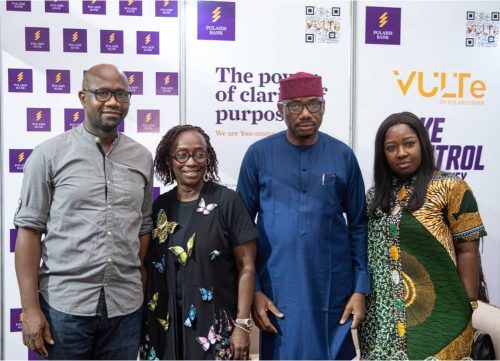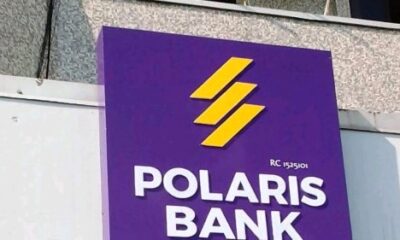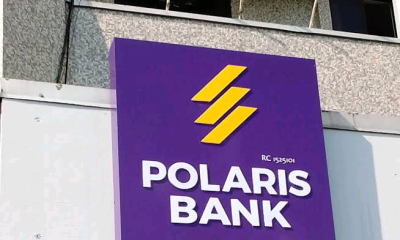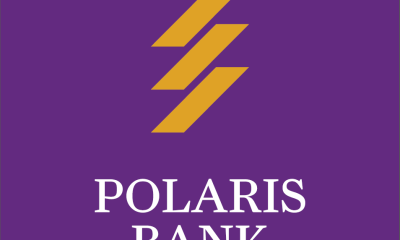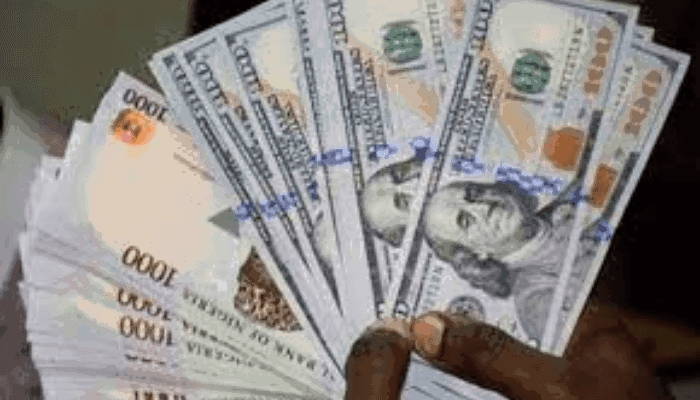Polaris Bank and Eventful Limited have reinforced their support for Nigeria’s Small & Medium Enterprises (SMEs) sector with three firms empowered at the just-concluded 5th Lagos Fashion Souk to further grow their businesses.
While handing the cheques to the winners, who were successful in a business pitch, Polaris Bank’s Managing Director/CEO, Mr. Innocent C. Ike, disclosed that the most important factor required by existing and budding entrepreneurs is to get investors interested in their businesses is the entrepreneurial spirit.
Aside from the business pitch winners, special prizes were also given to the Most Original Store and Best Decorated Store at the Fashion Souk. The winners were given equipment grants by Polaris Bank to further expand their businesses.
The overall winner of the pitch, Mrs. Oluwatosin Ogunbanjo, who runs a leather bag and shoe company, Avenue 7, got N750,000 and first runner-up, Victoria Udoh, a painting on Fabric Company, Vudoh was given N500,000 while the second runner-up, Tunde Issa, a Tailor and Founder of the male clothing line company, RoyalKlassicKoutoure, went home with N250,000.
The hugely attended one-day Fashion Souk/business fair which was held at the prestigious Harbour Point facility in Victoria Island, Lagos, on Sunday, provided a platform for more than 150 SMEs in Nigeria’s fashion industry to showcase their creativity, product lines, and economic potentials. Some of the SMEs categories at the fair included: manufacturers, retailers, leather, and jewelry/accessories.
The objective of sponsoring the Fashion Souk according to Polaris Bank was a reinforcement of its support to SMEs as the catalyst for propelling the growth of the Nigerian economy.
Shedding more light on how fundamental entrepreneurial spirit is for business success, the Polaris Bank CEO said he has a habit of telling entrepreneurs that what makes the difference, “Is the creative idea that an entrepreneur has and the ability to sit down and put it together diligently in a well-articulated manner.”
He added that “Creative ideas are the only way to attract funding from banks and individuals who will like to invest in the idea because they will see clearly that it is viable. He said the only way an entrepreneur can achieve that is by sitting down and putting his thoughts together and by making sure he crosses all the T’s and dots all the I’s.”
According to the Polaris Bank CEO, “When such a business proposal is presented to any investor Bank, it will be very convincing and such an entrepreneur will not get a ‘no’ for an answer.”
Earlier in her address too, Chairman of Eventful/Convener of the Event, Mrs. Yewande Zaccheus, appreciated Polaris Bank for consistently supporting SMEs in the country over the years, remarking that the Bank is not only talking but actually putting its money where its mouth is and urged the Bank to sustain the Partnership for a sustainable Fashion Souk.
The highlight of the Fashion Souk was the product launch that SMEs could leverage the Bank’s loan products like Polaris Business Loan, Invoice Discounting facility, and LPO financing among others were pitched with the participating SMEs.
The Bank has developed SME-friendly products to cater to the needs of SMEs based on sector/industry-specific, ranging from SMEs in the Health sector, Education, Manufacturing, General business, Agriculture, Export, Creative Industry, etc.”
Polaris Bank also provides business advisory at no cost while SMEs are encouraged to send in their business proposal for review via- smebusiness@polarisbanklimited.com
Aside from Polaris Bank, the fashion fair also featured product launches by other top participating Fashion companies like Arami, Tara, Mobos, and Zaron; as well as runways by Clatural, Aaboux/Cornocupia, Woora, and Dyelab, among others.
Nigeria’s fashion sub-sector has huge and untapped potentials capable of reducing the rate of unemployment in the country. According to statistics by the Fashion Association Designers of Nigeria (FADAN), Nigeria’s fashion industry is valued at $10 billion. Africa Development Bank (AfDB) also projects the global fashion industry’s worth to be over $2.5 trillion with Africa’s share estimated at less than 1% of that value in 2020, putting Africa’s entire textile/clothing market at more than $31 billion.

 BIG STORY4 days ago
BIG STORY4 days ago
 BIG STORY1 day ago
BIG STORY1 day ago
 BIG STORY2 days ago
BIG STORY2 days ago
 BIG STORY5 days ago
BIG STORY5 days ago
 BIG STORY3 days ago
BIG STORY3 days ago
 BIG STORY2 days ago
BIG STORY2 days ago
 BIG STORY3 days ago
BIG STORY3 days ago
 BIG STORY2 days ago
BIG STORY2 days ago




